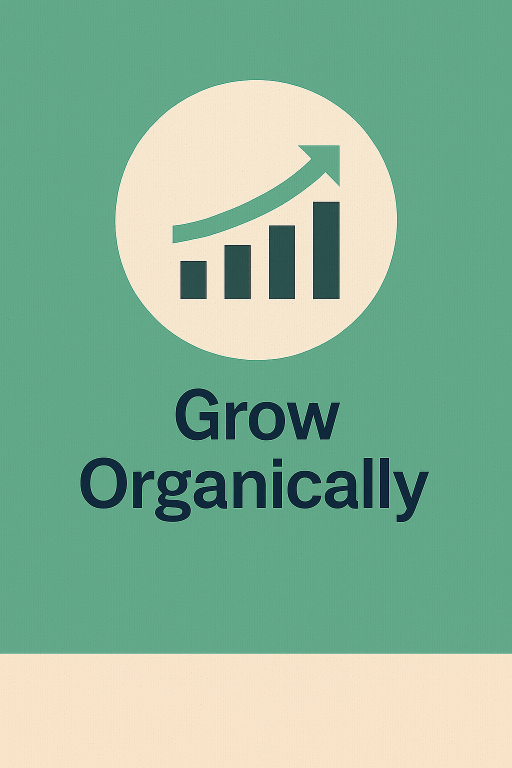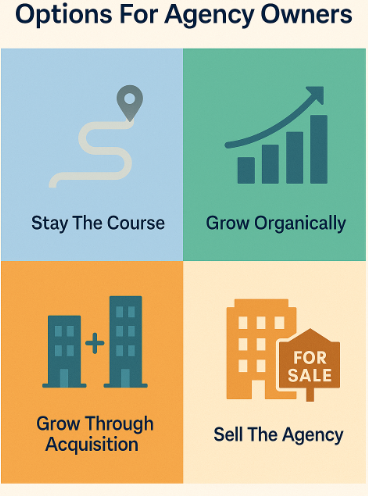One of the most exciting paths for agency owners after an exit?
👉 Staying on to help scale what you’ve built.
More and more buyers today don’t want to just buy your business and show you the door. They want to partner with you—to add fuel to what you’ve started.
Here’s what that can look like:
🚀 Bigger growth goals
You get access to capital, resources, systems, and expertise that let you finally chase the ideas that were on your “someday” list.
👥 Expanded team and capabilities
You can offer more to your clients and more career opportunities to your team—without carrying all the risk alone.
💰 Second bite of the apple
If you rolled equity, you’re not just helping the agency grow—you’re building toward a second payday that could be bigger than the first.
⚖️ More support, less stress
You don’t have to worry about payroll, legal, or back-office. You can focus on what you love doing—whether it’s sales, strategy, client relationships, or vision.
Selling your agency doesn’t have to be the end.
For many, it’s just the beginning of a much more rewarding next chapter—with a bigger team, bigger goals, and a partner who believes in your vision.
If you’re considering selling but don’t want to walk away, there are options.
Lots of them.
Contact me if you’d like to know more.





